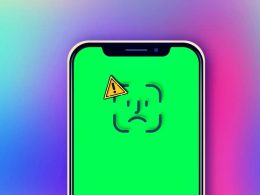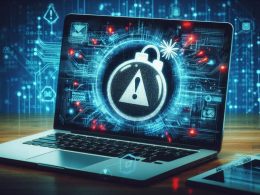Protect your iPhone from the clutches of the FBI by switching to longer passcodes
The on-going tussle between the FBI and Apple on the San Bernardino case has raised many concerns, most of which come from security experts. The FBI wants Apple to build a backdoor in one particular iPhone, but CEO Tim Cook is against it, saying it would compromise all iPhones. Users, though, can protect themselves better simply by switching to larger passcodes, as per The Intercept’s report.
The case of FBI versus Apple in the San Bernardino issue has attracted the attention of people from all over the world. The issue is the FBI requesting Apple to build a backdoor to help them break into the iPhone of one of the killers involved in the mass shooting spree of San Bernardino, which claimed 14 victims. Apple CEO Tim Cook, though, has rejected the FBI’s appeal to do so, saying that if he were to do it, then the backdoor would hand the FBI the ability to break into any iPhone they wish.

No one knows exactly what methods of encryption are used by iPhones or likewise, what methods are used by the FBI to break into a mobile device. However, what is known is that after failing to guess the correct passcode 5 times, iPhone disables further attempts for one minute. This waiting time increases to 5 and then 15 minutes later, till 10 unsuccessful attempts are made.
After that, all the data on the iPhone is erased. This is what the FBI wants Apple to change on the device of the accused. They wish Apple to remove this waiting time as well as the number of unsuccessful attempts allowed on an iPhone. Tim Cook has come out against this openly for he believes that doing such a thing would mean that the backdoor could hypothetically be deployed on any iPhone device later. Many security professionals, as well as Google CEO Sunder Pichai, have come out in support for Tim Cook on his stand on the issue.
However, if one looks at it from the perspective of a casual iPhone user, a simple method is available to prevent the FBI from getting their way and gain access to your iPhone easily. The FBI, no doubt, will look to enforce some brute force algorithm to guess the correct passcode of the device they want. Brute force algorithms match a code with all possible combinations of numbers.
This means that eventually, all brute force algorithms yield a successful result. However, the viability of using a brute force algorithm lies in how long it takes for it to crack the passcode. This is where the trick lies. If you have a 6 digit passcode of your iPhone, that means that there are 10^6 possible combinations to be tested.
This takes about 24 hours to do, but not even all the combinations need to be tested after a match is found, so an average of 11 hours is required for cracking a usual 6 digit passcode. This is not a small time, but still bearable, considering the value of data obtained thereafter. However, change that passcode from 6 digits to 11 digits, and the time required to get a match would shoot up to 127 years! Surely no one would sit around for that long time.
This is a simple way to prevent the FBI from gaining access to your iPhone’s data should they get their way with Apple. However, there are two things of importance. The first is to use a random 11-digit number as a passcode and not a phone number, birthdate, social security number, etc., for such matches are easier to find. Also, it is important not to use touch IDs, since it is fairly simple for legal authorities to get your thumb or finger impression on your device.
One might think here that why is so much fuss required to lock your phone away from authorities. Well, it is within the rights of legal agents to confiscate your digital devices for hours when you travel internationally. Even local police officers can get a warrant to search your phone within 15 minutes these days. So, it is important to take this preventive measure as soon as possible.









